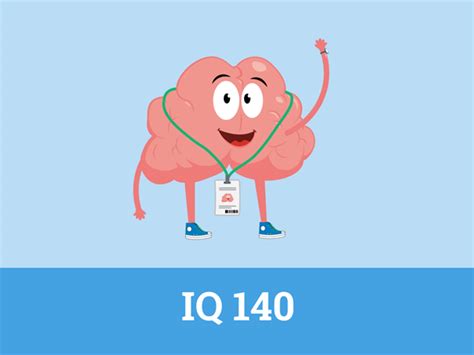An IQ of 140 is considered to be well within the range of giftedness, with individuals who score within this range typically exhibiting exceptional cognitive abilities and intellectual aptitude.

Understanding IQ Scores
IQ (Intelligence Quotient) is a measure of cognitive abilities, including problem-solving, reasoning, memory, and comprehension. It is typically assessed through standardized tests designed to evaluate an individual’s performance against a normed sample of the population.
IQ scores are distributed according to a bell curve, with the majority of individuals falling within the average range (IQ scores between 85 and 115). Individuals with IQ scores above 130 are considered to be in the “gifted” range, while those scoring above 140 are classified as “highly gifted.”
Significance of an IQ of 140
An IQ of 140 is a significant indicator of intellectual prowess. Individuals with this level of cognitive ability often demonstrate:
- Exceptional problem-solving and analytical skills
- Strong memory and recall abilities
- Advanced comprehension and learning capacity
- A high degree of creativity and originality
- A thirst for knowledge and a desire to explore complex ideas
Benefits of an IQ of 140
Individuals with an IQ of 140 typically enjoy numerous benefits, including:
- Academic success: They excel in school and higher education, often pursuing advanced degrees in fields such as engineering, medicine, law, and academia.
- Career opportunities: They are highly sought after in professions that require strong cognitive abilities, such as research, innovation, and leadership roles.
- Social advantages: They often form strong bonds with others who share their intellectual interests and engage in stimulating conversations.
- Personal fulfillment: They find joy in pursuing their intellectual passions and making meaningful contributions to society.
Pros and Cons of an IQ of 140
Pros:
- Enhanced intellectual capabilities
- Greater academic and career success
- Rich social interactions
- Personal satisfaction from intellectual pursuits
Cons:
- Pressure to perform and maintain high standards
- Risk of perfectionism and self-doubt
- Occasional feelings of isolation due to intellectual differences
Applications of an IQ of 140
Individuals with an IQ of 140 are well-suited for a wide range of applications, including:
- Advanced research and development
- Innovation and technological advancements
- Leadership and management
- Education and academia
- Creative and artistic endeavors
Comparison with Other IQ Ranges
| IQ Range | Percentage of Population | Characteristics |
|---|---|---|
| 85-115 | 68% | Average |
| 115-130 | 14% | Bright |
| 130-145 | 2% | Gifted |
| 145+ | <1% | Highly Gifted |
FAQs
1. What factors contribute to an IQ of 140?
IQ is influenced by a combination of genetic and environmental factors, including genetics, nutrition, and education.
2. Can IQ change over time?
IQ scores can fluctuate slightly over time, but they typically remain relatively stable throughout adulthood.
3. Are all individuals with an IQ of 140 equally successful?
IQ alone does not guarantee success. Factors such as motivation, work ethic, and social skills also play a significant role.
4. How can I determine if I have an IQ of 140?
IQ can be assessed through standardized tests administered by qualified professionals.
5. What are the challenges faced by individuals with an IQ of 140?
They may experience pressure to achieve, perfectionism, and occasional feelings of isolation.
6. What are the advantages of having an IQ of 140?
They enjoy enhanced cognitive abilities, academic and career success, strong social interactions, and personal fulfillment.
7. Can individuals with an IQ of 140 achieve anything they set their minds to?
With effort, dedication, and support, individuals with an IQ of 140 have the potential to achieve great things.
8. Is an IQ of 140 a guarantee of happiness?
IQ is not directly related to happiness. However, it can contribute to personal fulfillment by allowing individuals to pursue their intellectual interests and make meaningful contributions to society.
